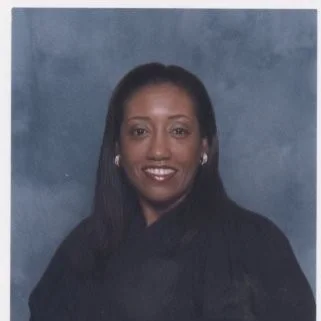Queens Courts Wait to See Raise the Age’s Impact
/By David Brand
Two days into New York’s new Raise the Age law Queens Family Court has yet to see significant changes — though court officers say they are waiting to see how the law unfolds. A similar attitude persists throughout the court system.
Most of the attention generated by the law relates to the transfer of 16- and 17-year-olds off Rikers Island and into a special juvenile facility in the Bronx.
“Kids will be treated like kids instead of adults,” de Blasio said in a statement Monday, though the city has yet to adequately staff the facility with trained youth development specialists and will rely on corrections officers for the foreseeable future.
But the law also diverts most defendants under age 17 to Family Court and newly established youth parts.
The Raise the Age law created a new category called Adolescent Offender, which refers to 16- or 17-years-olds accused of committing a felony. According to the state, AOs will have their cases heard in the youth parts of criminal court and removed to Family Court.
The Queens Youth Part will be located at the Queens Criminal Courthouse at 125-01 Queens Blvd.
Acting Supreme Court Justice Lenora Gerald will preside over the Queens Youth Part, a courts spokesperson told the Eagle.
Acting Supreme Court Justice Lenora Gerald will preside over Queens Youth Part in Queens Criminal Court. // LinkedIn photo
The spokesperson said it was “impossible to tell” how many cases would be heard in the Youth Part and that the court will maintain “standard staffing for court officers.”
AOs in pre-trial detention will be held in the newly established “specialized secure juvenile detention facilities for older youth.” In New York City, that refers to the Horizon Juvenile Center in the South Bronx.
“The New York State Courts have worked tirelessly to prepare for this groundbreaking law,” said New York State Chief Judge Janet DiFiore in a statement. “Our judges and non-judicial staff are well-trained and prepared.”
The majority of 16- and 17-year-old offenders, even those accused of committing a violent felony, will have their cases removed to Family Court “where they will be treated the same as current juvenile cases,” the state says.
According to the state, the case will not be removed to Family Court depends if the teen “used a firearm or deadly weapon, whether the offense was a sex crime or the individual caused significant physical injury.”
The law also gives district attorneys discretion if “other extraordinary circumstances are present.”
If the district attorney determines that such “extraordinary circumstances” are present, they must present evidence as to why the case should remain in criminal court within 30 days.
A spokesperson for Queens District Attorney Richard Brown said the lack of clear instruction has caused some confusion.
“Unfortunately, this new legislation fails to define ‘extraordinary circumstances,’” the spokesperson said. “We are going to have to determine what it means on a case-by-case basis.
“We would take into account such things as the type of crime committed; the defendant's criminal history, if any; any injuries to the victim; and any other pertinent information surrounding the commission of the alleged crime,” the spokesperson continued. “There is no one specific thing that we can point to that would tell us that we have a case with ‘extraordinary circumstances’ nor can we tell with specificity in what types of cases we would be filing such a motion.”
The shift to Family Court has drawn serious criticism from court officers unions who say the increased number of teen offenders will strain staff.
“We are short 350 to 400 court officers,” New York State Court Officers Association President Dennis Quirk said at a press conference in Brooklyn last Tuesday. “If we can't feel safe, how can the general public which uses the courts every day feel safe?"
Quirk told the Eagle the union takes no position on the law itself, but said “Raise the Age is only exacerbating an already dangerous situation.”
“We were already short 350 court officers short and they have not filled these vacancies in two and a half years,” Quirk said. “Opening additional courtrooms just increases the burden.”
Quirk said the union will host a protest event outside a Queens courthouse sometime in the next few weeks.
After two days under the new law, court officers say they have not seen the effect of the law just yet — but “that could change very quickly,” one officer said.
“It will be busier here,” the officer continued. “How much busier remains to be seen.”
When reached for comment last week, Queens Family Court Supervising Judge Carol Stokinger’s staff referred questions to the New York State Unified Court System Office of Public Information.
Spokesperson Lucian Chalfen provided a statement in response.
“The New York State Courts have worked tirelessly to prepare for this groundbreaking law. We’ve created and staffed new Youth Parts, expanded capacity for Family Court proceedings, especially in New York City, for the older adolescents that court will now address, and expanded access to court for youth arrested after hours to ensure they go before specially trained criminal court ‘accessible magistrate’ judges to be promptly heard on detention status,” Chalfen said. “In addition, we’ve created a new case management system to carefully track and provide statewide data regarding all raise the age impacted youth. Our judges and non-judicial staff are well-trained and prepared.”




